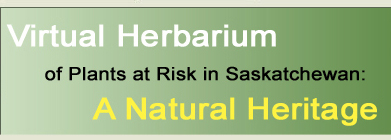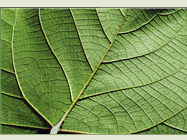
|

|

|

|

|

|

|
|
|
|
|
|
| Prunus pumila var. besseyi (Bailey) Gleason | Species Image Gallery (opens in a new window) |
||||||||||||||||||||||||||
| TAXONOMY | |||||||||||||||||||||||||||
| Family: | Rosaceae | ||||||||||||||||||||||||||
| Genus: | Prunus | ||||||||||||||||||||||||||
| Species Synonyms: | Cerasus pumila ssp. besseyi
(Bailey) W.A. Weber Prunus besseyi Bailey Prunus pumila ssp. besseyi (Bailey) Nizhnikev |
||||||||||||||||||||||||||
| Common Names: | western sandcherry dwarf sandcherry Bessey’s sandcherry |
||||||||||||||||||||||||||
| DISTRIBUTION | |||||||||||||||||||||||||||
| Canada: | east-central and southeastern Saskatchewan – southern Manitoba | ||||||||||||||||||||||||||
| Saskatchewan: | southeastern Saskatchewan; Red Deer River Valley – Qu’Appelle River Valley | ||||||||||||||||||||||||||
| Ecoregion: | Aspen Parkland, Mid-Boreal Lowland | ||||||||||||||||||||||||||
| HABITAT | |||||||||||||||||||||||||||
| Saskatchewan: | sandy pine woods or prairie banks | ||||||||||||||||||||||||||
| Canadas: | sandy beaches, dunes, and calcareous shores and ledges | ||||||||||||||||||||||||||
| RARITY STATUS | |||||||||||||||||||||||||||
| Provincial
Status According to Harms (2003): |
Endangered |
||||||||||||||||||||||||||
| Nature Conservancy Status: | G5 S1 |
||||||||||||||||||||||||||
| Saskatchewan
Species at Risk Status: |
None |
||||||||||||||||||||||||||
| COSEWIC Status: | None |
||||||||||||||||||||||||||
| Prunus pumila var. besseyi is endangered because of extreme rarity in Saskatchewan. Immediate or probable threats have been identified for this species. | |||||||||||||||||||||||||||
| SPECIES DESCRIPTION | |||||||||||||||||||||||||||
| Height: | 10 – 40 cm | ||||||||||||||||||||||||||
| Stems: | low shrub, decumbent or ascending, spreading, bark almost black; branches red, becoming greyish, glabrous | ||||||||||||||||||||||||||
| Leaves: | simple, alternate, 4 – 6.5 cm long, 1 – 2.5 cm wide, oblanceolate to spatulate, base cuneate, apex acute to obtuse, dark green above, glaucous below, margin entire near the base; petioles 5 – 14 mm long, glabrous, may be glandular near leaf; stipules 4 – 10 mm long, narrowly lanceolate, may be narrowly lobed, glandular, glabrous | ||||||||||||||||||||||||||
| Inflorescence: | in clusters of 2 – 4; pedicels 4 – 10 mm long | ||||||||||||||||||||||||||
| Flowers: | actinomorphic; hypanthium campanulate, glabrous; calyx 5-merous, often glandular, glabrous; corolla 5-merous, about 1 cm across, white; stamens 25 – 30 | ||||||||||||||||||||||||||
| Fruits: | drupe 6 – 12 mm broad, dark brown to purplish, glabrous; stone oval | ||||||||||||||||||||||||||
| |||||||||||||||||||||||||||